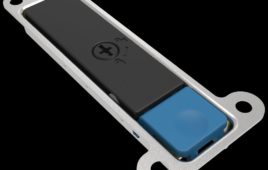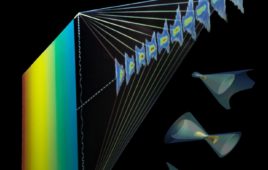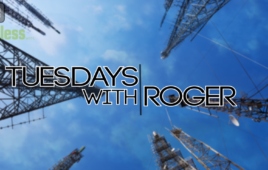T-Mobile and AT&T duked it out early this week in their race to unleash unlicensed spectrum. The pair on Monday turned out back-to-back announcements of License Assisted Access (LAA) field tests in California that saw the Un-carrier hit speeds upwards of 740 Mbps.
Off the press first, AT&T’s release said the carrier teamed up with Ericsson to conduct live LTE-LAA field trials in downtown San Francisco that achieved speeds of more than 650 Mbps. The four carrier aggregation trial utilized one 20 MHz licensed carrier with three 20 MHz unlicensed carriers (for a total of 80 MHz of spectrum) alongside 4×4 MIMO and 256-QAM, an AT&T representative told Wireless Week. The carrier added that active tests of the technology continue to yield increasing speeds.
“We’re excited to be the one of the first carriers to have made our first successful LTE-LAA test and reach blazing fast speeds,” Marachel Knight, AT&T’s senior vice president of Wireless Network Architecture and Design, commented. “As demand continues to grow at a rapid pace on our network, being able to offer customers not only fast speeds, but also increased capacity by combining licensed and unlicensed spectrum is an important milestone.”
The carrier noted the push toward LAA is part of its 5G Evolution plan, which will see AT&T head for gigabit speeds through the use of MIMO, carrier aggregation, and unlicensed technologies. AT&T Vice President of RAN and Device Design Gordon Mansfield told Wireless Week at Mobile World Congress in March the carrier is aiming to launch four carrier aggregation with LAA in the second half of this year. That combination, along with 4×4 MIMO and 256-QAM is expected to propel users to peak speeds of around 1 Gbps, he indicated. More on that here.
But AT&T wasn’t the only one with an LAA announcement on Monday.
T-Mobile in its own release touted its achievement of speeds of up to 741 Mbps in live field tests on its commercial network in Los Angeles. Though it didn’t mention a test partner, T-Mobile did note its use of 80 MHz of aggregated spectrum to hit that mark.
“LAA is the just the latest example of how T-Mobile is innovating the way forward. While our competitors scramble to deal with the way unlimited data plans are slowing down their networks, we’re already moving on to what’s next,” T-Mobile CTO Neville Ray said. “This means that the fastest LTE network – that’s T-Mobile – will only get faster.”
The Un-carrier noted that LAA technology allows greater carrier aggregation than LTE-U – another unlicensed technology the carrier has been pursuing that opens up 20 MHz of unlicensed spectrum for aggregation – and will thus enable even more bandwidth and faster speeds. T-Mobile said it plans to further densify its network with small cells which include LAA functionality starting later this year.
Filed Under: Telecommunications (spectrums)




